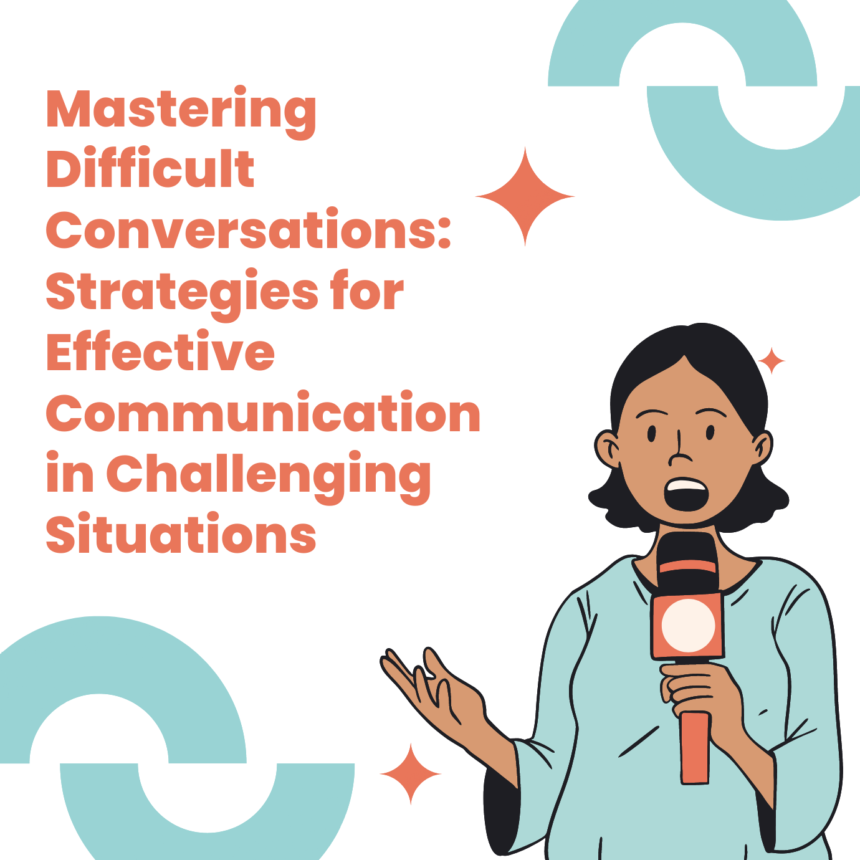Difficult conversations can be uncomfortable and emotionally charged, whether it’s addressing conflicts, giving constructive feedback, or discussing sensitive topics. However, avoiding these conversations can lead to unresolved issues and strained relationships. In this article, we provide strategies for mastering difficult conversations, equipping you with effective communication techniques to navigate challenging situations with confidence and achieve positive outcomes.
- Prepare and Plan: Before entering a difficult conversation, take time to prepare. Clarify your objectives, identify key points, and anticipate potential reactions. Planning ahead can help you stay focused and ensure that your message is communicated effectively.
- Choose the Right Time and Place: Timing and environment play a significant role in the success of difficult conversations. Choose a neutral and private setting where both parties can feel comfortable and avoid distractions. Timing matters too; aim for a time when everyone involved can be fully present and engaged.
- Active Listening: Actively listen to the other person’s perspective and show genuine empathy. Avoid interrupting or formulating your response while they are speaking. By demonstrating attentive listening, you create a safe space for open dialogue and mutual understanding.
- Use “I” Statements: When expressing your thoughts or concerns, use “I” statements instead of “you” statements. This approach helps avoid blaming or accusing the other person and fosters a more collaborative atmosphere. For example, say, “I feel frustrated when…” rather than “You always…”
- Seek Understanding: Ask clarifying questions to ensure you fully understand the other person’s viewpoint. This demonstrates your willingness to listen and shows respect for their thoughts and feelings. Repeat back what you heard to confirm your understanding and to validate their perspective.
- Stay Calm and Manage Emotions: Emotions can escalate during difficult conversations. Stay calm and composed, even if the other person becomes upset or confrontational. Practice deep breathing and focus on maintaining a respectful and constructive tone.
- Find Common Ground: Look for areas of agreement or shared goals. Highlighting common ground can help establish a foundation for collaboration and finding solutions. Emphasize that your intention is to work together to resolve the issue or find a mutually beneficial outcome.
- Explore Solutions: Instead of dwelling on the problem, shift the focus toward finding solutions. Brainstorm together, explore different options, and be open to compromise. Aim for win-win outcomes that address the concerns of all parties involved.
- Follow-Up and Reflect: After the conversation, follow up with any agreed-upon actions or next steps. Take time to reflect on the conversation, identifying areas for improvement and learning. This self-reflection will help you refine your communication skills for future challenging conversations.
By mastering the art of difficult conversations, you can enhance your conflict resolution skills, build stronger relationships, and foster a more positive and open communication environment. Remember, with practice and the right strategies, even the most challenging conversations can lead to growth and resolution.
